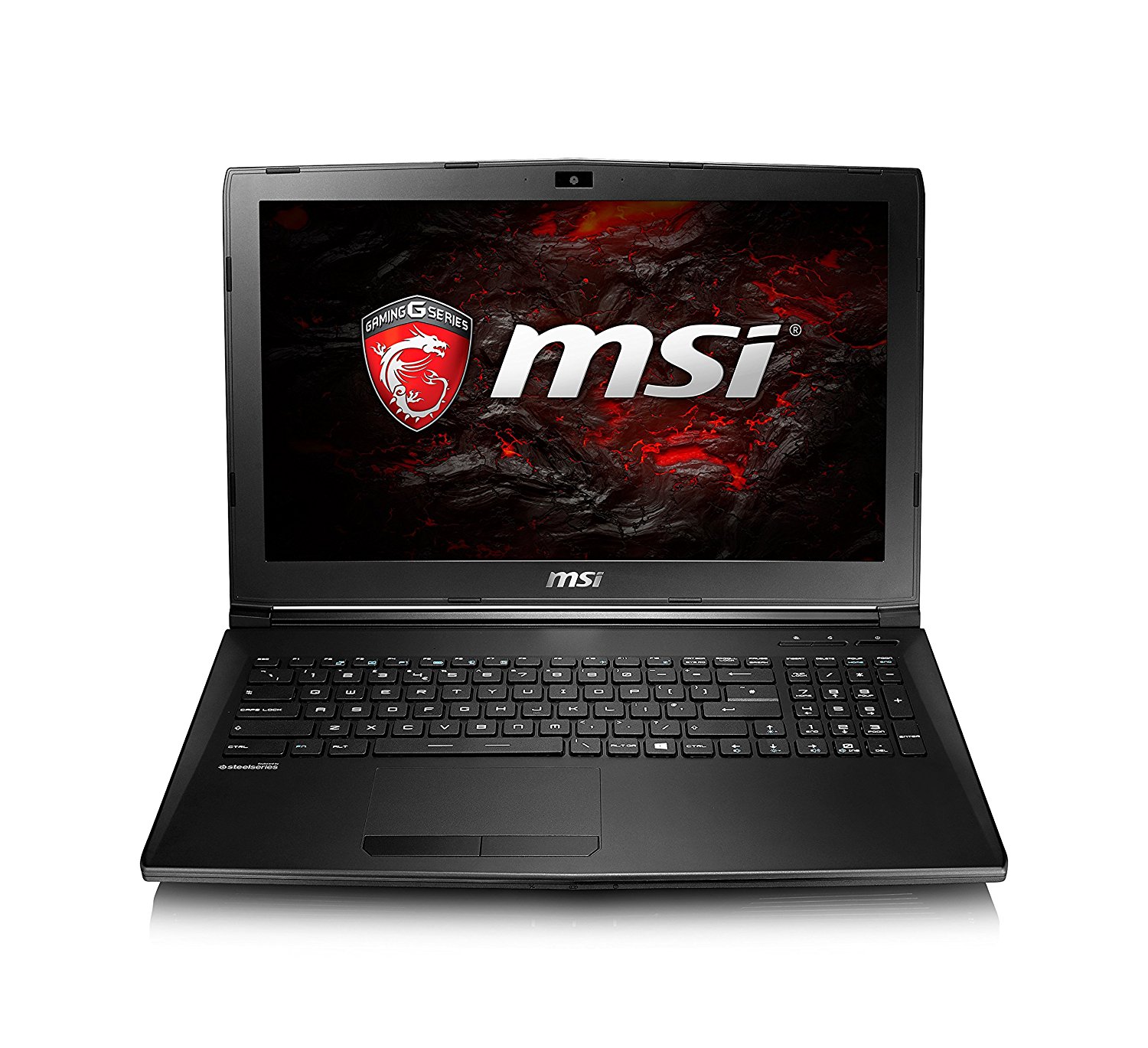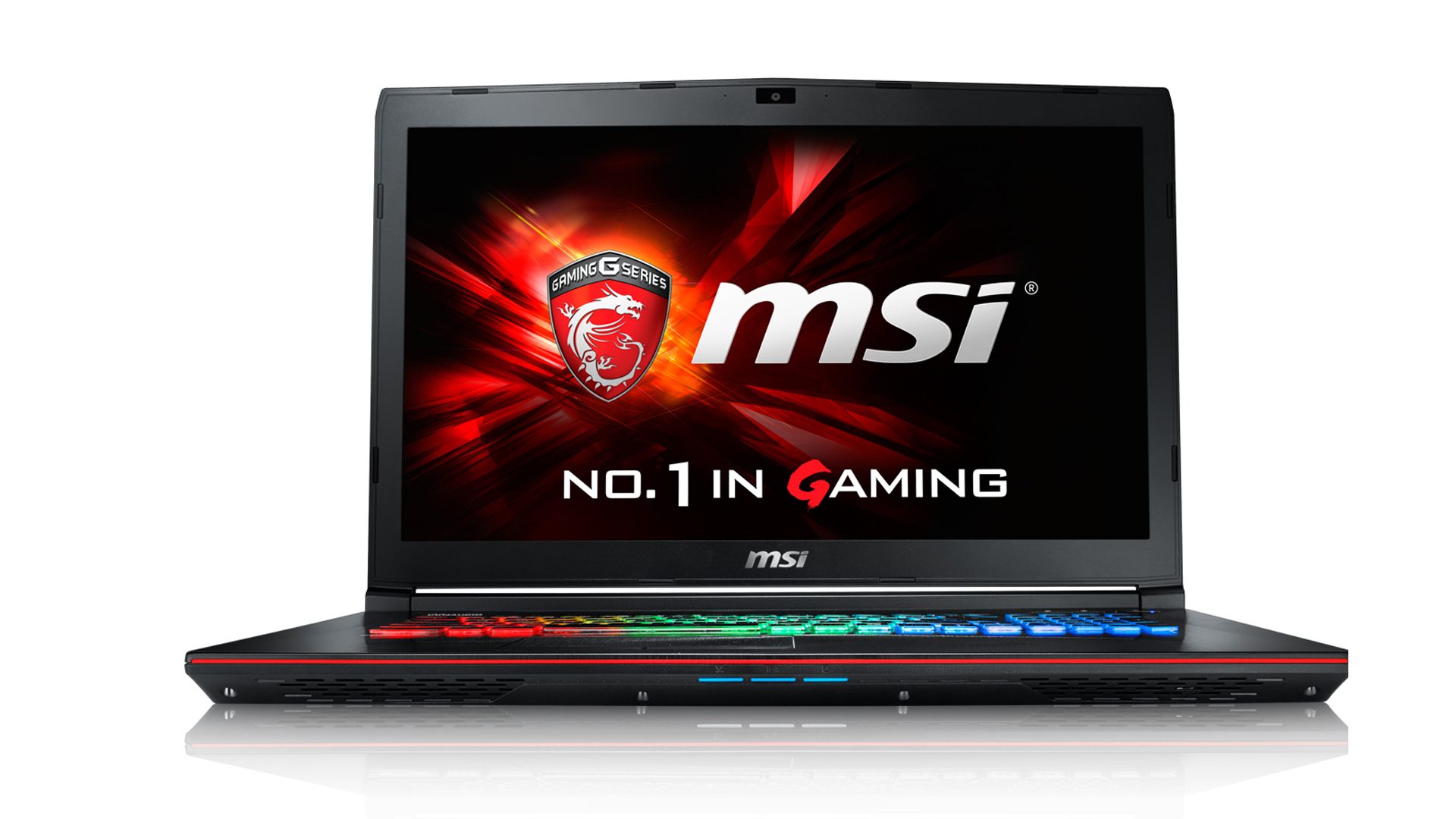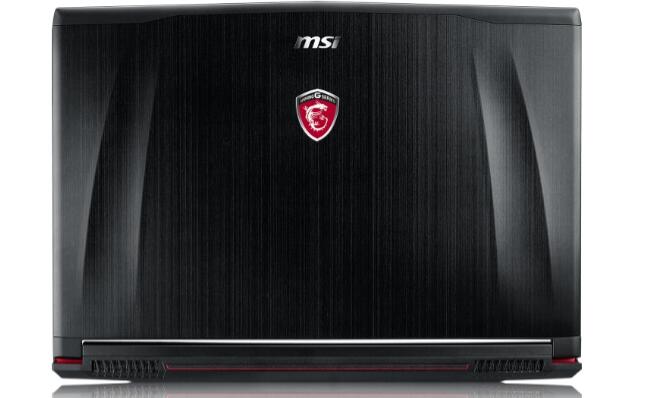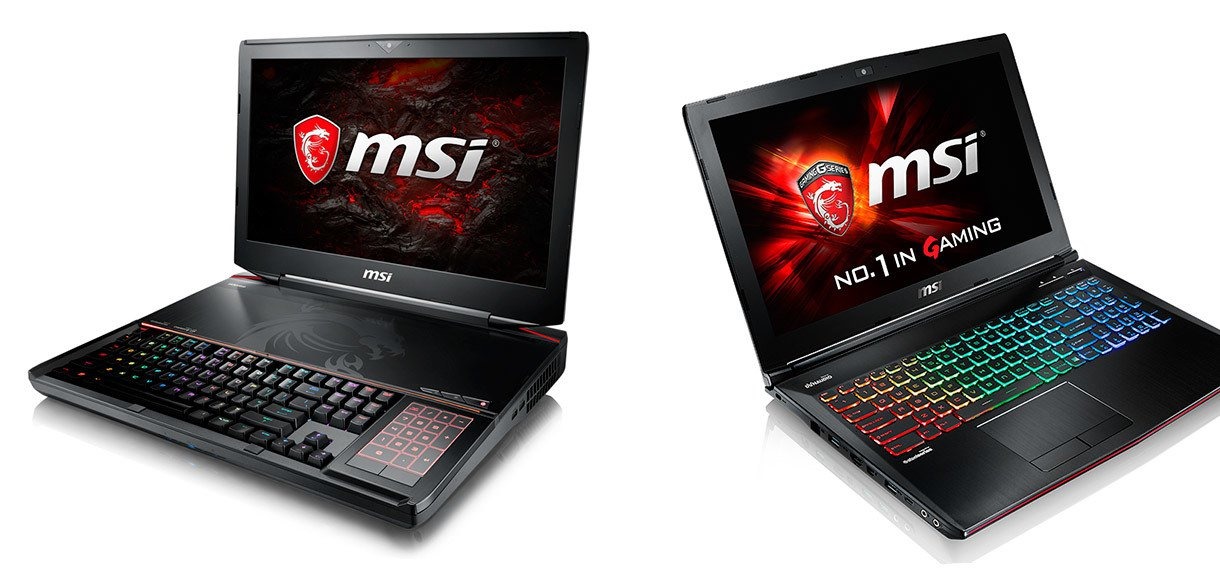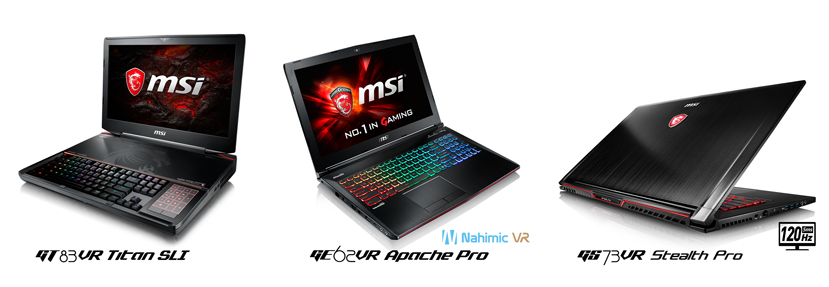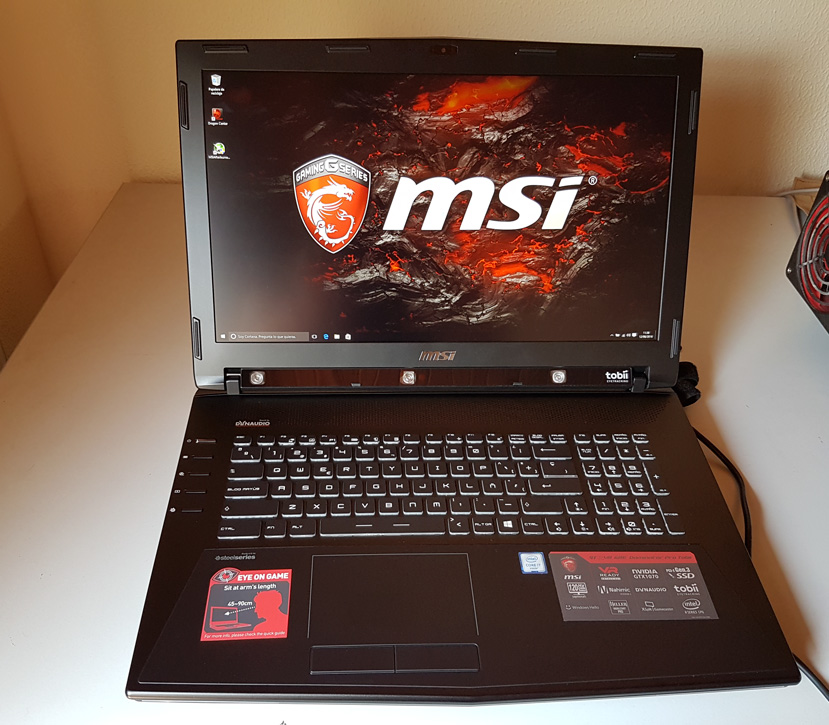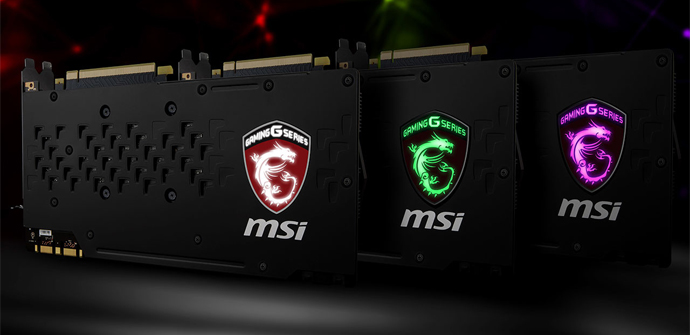MSI GS65 Stealth Thin Review: a 15.6-inch gaming laptop
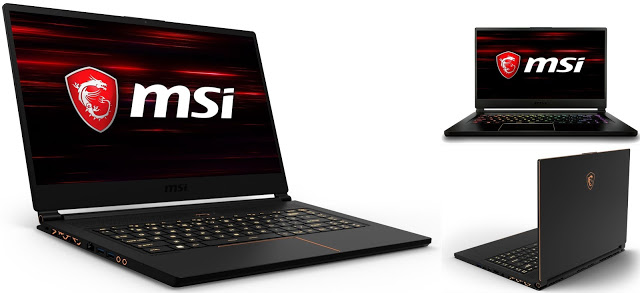
With the GS65 Stealth Thin, MSI is exploring an idea that is quite overused in multimedia laptops, although it is actually quite new in gaming laptops because it reduces bezels as much as possible to get a smaller chassis. For example, this is what ASUS and Dell do with their ZenBook and XPS lineups, respectively.
The laptop is slightly different from the MSI GS63VR, which was the only 15.6-inch GS model so far. The MSI GS63VR also has an independent numeric keypad, which the GS65 lacks due to its small size.
Instead of the striking red details found on most gaming laptops, MSI has decided to go with a subtler design for the GS65. Although it has the typical black finish of the GS lineup, the GS55 also has elegant golden details on the exhaust vents, the hinges and the lid, which has a golden line around it and rocks the Gaming Series dragon logo in the same color.
Although MSI is using the word “thin” for the model’s name, it is actually not any thinner than the aforementioned GS63VR Stealth, which is 17.7 mm think (according to the manufacturer). Its weight is also very similar (both models weigh 1.8 kg, according to MSI).
The GS65’s biggest downside is that the chassis is not sturdy enough. Despite being made entirely of aluminum, it somewhat tends to bend under focused pressure, which happens both on the lid and the keyboard area.
It is worth mentioning that the camera is above the display and not below like in a lot of models with thin bezels like this one.
The laptop’s hinge system is the only part made of plastic and allows us to fold back the display 180º. The design keeps the display in its place while using the laptop as usual, but it cannot prevent the display from moving if we use the laptop in unstable places like moving buses or trains.
The GS65 is one of the first laptops to feature the new 6-core 8th-gen Coffee Lake processors (or 9th-gen if we take into account the Kaby Lake R), which are much better in terms of performance than the 7th-gen Kaby Lake processors.
The laptop has a 6-core Intel Core i7-8750H at 2.2 GHz, which scored twice as much as the old Core i7-7700HQ in the multi-core Cinebench R15 benchmark (over 1000 points). Such score means the laptop is able to perform advanced tasks in the most demanding ways.
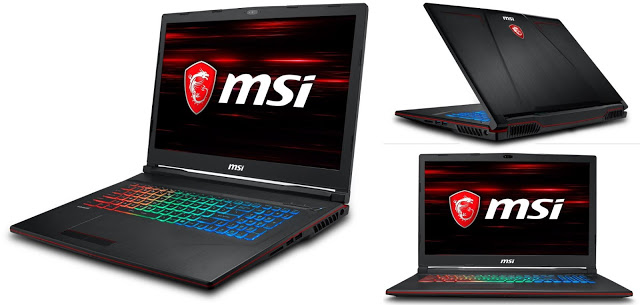 We are still talking about all the new MSI models, which is taking longer than I would like due to the amount of available information. Now it is time to talk about the MSI GP73 Leopard, a 17.3-inch gaming laptop that has a Coffee Lake processor and an NVIDIA GeForce GTX 1050 Ti or GTX 1060 GPU, placing it between the popular MSI GL73 and the great MSI GE73 Raider.
We are still talking about all the new MSI models, which is taking longer than I would like due to the amount of available information. Now it is time to talk about the MSI GP73 Leopard, a 17.3-inch gaming laptop that has a Coffee Lake processor and an NVIDIA GeForce GTX 1050 Ti or GTX 1060 GPU, placing it between the popular MSI GL73 and the great MSI GE73 Raider. On the right side, we can see the power jack, two USB 3.1 (Gen 1) Type-A ports and the SD/MMC card reader. On the left side, we find a wide range of ports, including another USB 3.1 (Gen 1) Type-A port, an RJ45 port, an HDMI port, a mini DisplayPort output, a USB 3.1 (Gen 2) Type-C port, two independent audio and mic jacks, and a Kensington lock slot.
On the right side, we can see the power jack, two USB 3.1 (Gen 1) Type-A ports and the SD/MMC card reader. On the left side, we find a wide range of ports, including another USB 3.1 (Gen 1) Type-A port, an RJ45 port, an HDMI port, a mini DisplayPort output, a USB 3.1 (Gen 2) Type-C port, two independent audio and mic jacks, and a Kensington lock slot. You must admit that MSI pulled off an impressive feat of engineering by fitting so many keys on its new mechanical Vigor GK80 keyboard. Glancing at its aluminum-profiled base, you are sure to notice its 16 cleverly-situated additional function keys.
You must admit that MSI pulled off an impressive feat of engineering by fitting so many keys on its new mechanical Vigor GK80 keyboard. Glancing at its aluminum-profiled base, you are sure to notice its 16 cleverly-situated additional function keys.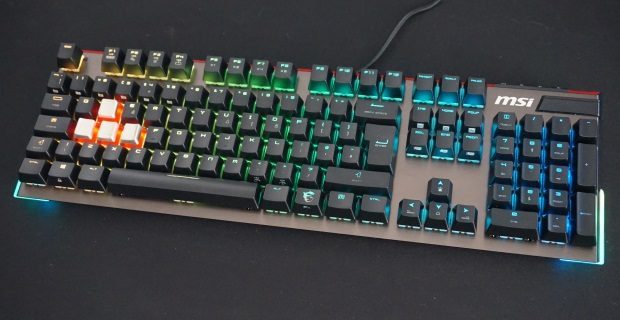 This is not including the four dedicated multimedia keys located in the upper right-hand corner or the 8 normal additional function keys located alongside the Fn keys. For a keyboard measuring 445 x 141 x 4 mm, this is quite an impressive technical achievement. But what’s the use of having so many keys? Except for a volume knob, this keyboard has all of the controls you will probably ever need – regardless of your intended use.
This is not including the four dedicated multimedia keys located in the upper right-hand corner or the 8 normal additional function keys located alongside the Fn keys. For a keyboard measuring 445 x 141 x 4 mm, this is quite an impressive technical achievement. But what’s the use of having so many keys? Except for a volume knob, this keyboard has all of the controls you will probably ever need – regardless of your intended use.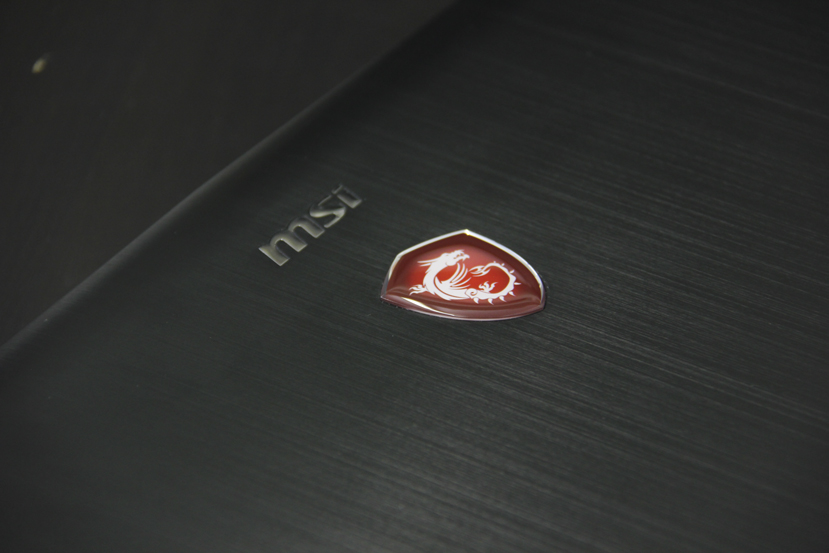 Let’s see what the MSI GT75VR Titan Pro is capable of.
Let’s see what the MSI GT75VR Titan Pro is capable of.